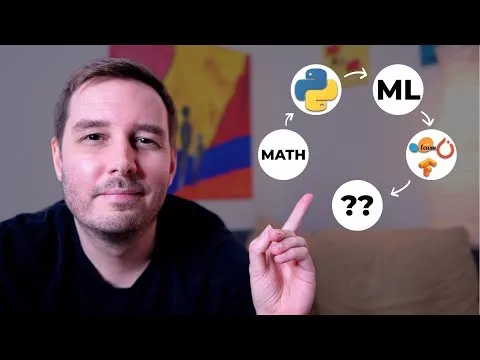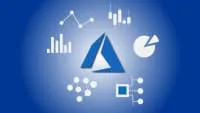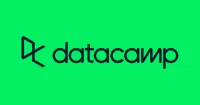
Understanding and Applying Linear Regression 
Linear regression is a powerful statistical technique used to identify relationships between variables and make predictions. It is widely used in business and data analysis to gain insights and make informed decisions. ▼
ADVERTISEMENT
Course Feature
![]() Cost:
Cost:
Free Trial
![]() Provider:
Provider:
Pluralsight
![]() Certificate:
Certificate:
No Information
![]() Language:
Language:
English
![]() Start Date:
Start Date:
Self Paced
Course Overview
❗The content presented here is sourced directly from Pluralsight platform. For comprehensive course details, including enrollment information, simply click on the 'Go to class' link on our website.
Updated in [March 06th, 2023]
This course, Understanding and Applying Linear Regression, provides learners with the opportunity to gain an understanding of how to identify patterns in data and test those relationships for statistical soundness. Learners will be introduced to simple regression and multiple regression, as well as the use of categorical variables. Upon completion of the course, learners will have a strong applied knowledge of regression in Excel, R, and Python that will help with factor analysis, logistic regression, and other powerful techniques.
[Applications]
Upon completion of this course, learners can apply their knowledge of linear regression to a variety of data analysis tasks. They can use linear regression to identify patterns in data and test those relationships for statistical soundness. Learners can also use linear regression to explore the use of categorical variables. Additionally, learners can use their knowledge of linear regression to further their understanding of factor analysis, logistic regression, and other powerful techniques.
[Career Paths]
1. Data Scientist: Data Scientists use their knowledge of mathematics, statistics, and computer science to analyze large datasets and uncover patterns and trends. They use this information to develop predictive models and algorithms that can be used to make decisions and solve problems. Data Scientists are in high demand and the field is expected to continue to grow in the coming years.
2. Business Analyst: Business Analysts use their knowledge of data analysis and business processes to identify areas of improvement and develop strategies to increase efficiency and profitability. They use data to identify trends and develop insights that can be used to inform decisions. Business Analysts are in high demand and the field is expected to continue to grow in the coming years.
3. Machine Learning Engineer: Machine Learning Engineers use their knowledge of mathematics, statistics, and computer science to develop algorithms and models that can be used to automate tasks and make decisions. They use their knowledge of linear regression and other machine learning techniques to develop models that can be used to make predictions and solve problems. Machine Learning Engineers are in high demand and the field is expected to continue to grow in the coming years.
4. Data Visualization Specialist: Data Visualization Specialists use their knowledge of data analysis and visualization techniques to create visual representations of data that can be used to communicate insights and inform decisions. They use their knowledge of linear regression and other data analysis techniques to create visualizations that can be used to identify patterns and trends. Data Visualization Specialists are in high demand and the field is expected to continue to grow in the coming years.
[Education Paths]
1. Bachelor of Science in Statistics: A Bachelor of Science in Statistics is a great way to gain a comprehensive understanding of the principles of statistics and data analysis. This degree program will provide you with the skills to analyze data, develop models, and interpret results. You will also learn about the latest trends in data science and analytics, and how to apply them to real-world problems.
2. Master of Science in Data Science: A Master of Science in Data Science is a great way to gain a deeper understanding of the principles of data science and analytics. This degree program will provide you with the skills to analyze large datasets, develop predictive models, and interpret results. You will also learn about the latest trends in data science and analytics, and how to apply them to real-world problems.
3. Doctor of Philosophy in Data Science: A Doctor of Philosophy in Data Science is a great way to gain a comprehensive understanding of the principles of data science and analytics. This degree program will provide you with the skills to analyze large datasets, develop predictive models, and interpret results. You will also learn about the latest trends in data science and analytics, and how to apply them to real-world problems.
4. Master of Business Administration in Data Science: A Master of Business Administration in Data Science is a great way to gain a comprehensive understanding of the principles of data science and analytics. This degree program will provide you with the skills to analyze large datasets, develop predictive models, and interpret results. You will also learn about the latest trends in data science and analytics, and how to apply them to business problems.
Course Provider

Provider Pluralsight's Stats at AZClass
Pluralsight ranked 16th on the Best Medium Workplaces List.
Pluralsight ranked 20th on the Forbes Cloud 100 list of the top 100 private cloud companies in the world.
Pluralsight Ranked on the Best Workplaces for Women List for the second consecutive year.
AZ Class hope that this free trial Pluralsight course can help your Machine Learning skills no matter in career or in further education. Even if you are only slightly interested, you can take Understanding and Applying Linear Regression course with confidence!
Discussion and Reviews
0.0 (Based on 0 reviews)
Explore Similar Online Courses

Counseling Psychology

Introduction to Anatomy - Online Course

Python for Informatics: Exploring Information

Social Network Analysis

Introduction to Systematic Review and Meta-Analysis

The Analytics Edge

DCO042 - Python For Informatics

Causal Diagrams: Draw Your Assumptions Before Your Conclusions

Whole genome sequencing of bacterial genomes - tools and applications

How I would learn Machine Learning (if I could start over)

Learn Data Science and Machine Learning on Microsoft Azure

Machine Learning for Everyone
 Related Categories
Related Categories
 Popular Providers
Popular Providers
Quiz
 Submitted Sucessfully
Submitted Sucessfully
1. What is the main purpose of this course?
2. Which programming languages are used in this course?
3. What will you be able to do after completing this course?


Start your review of Understanding and Applying Linear Regression